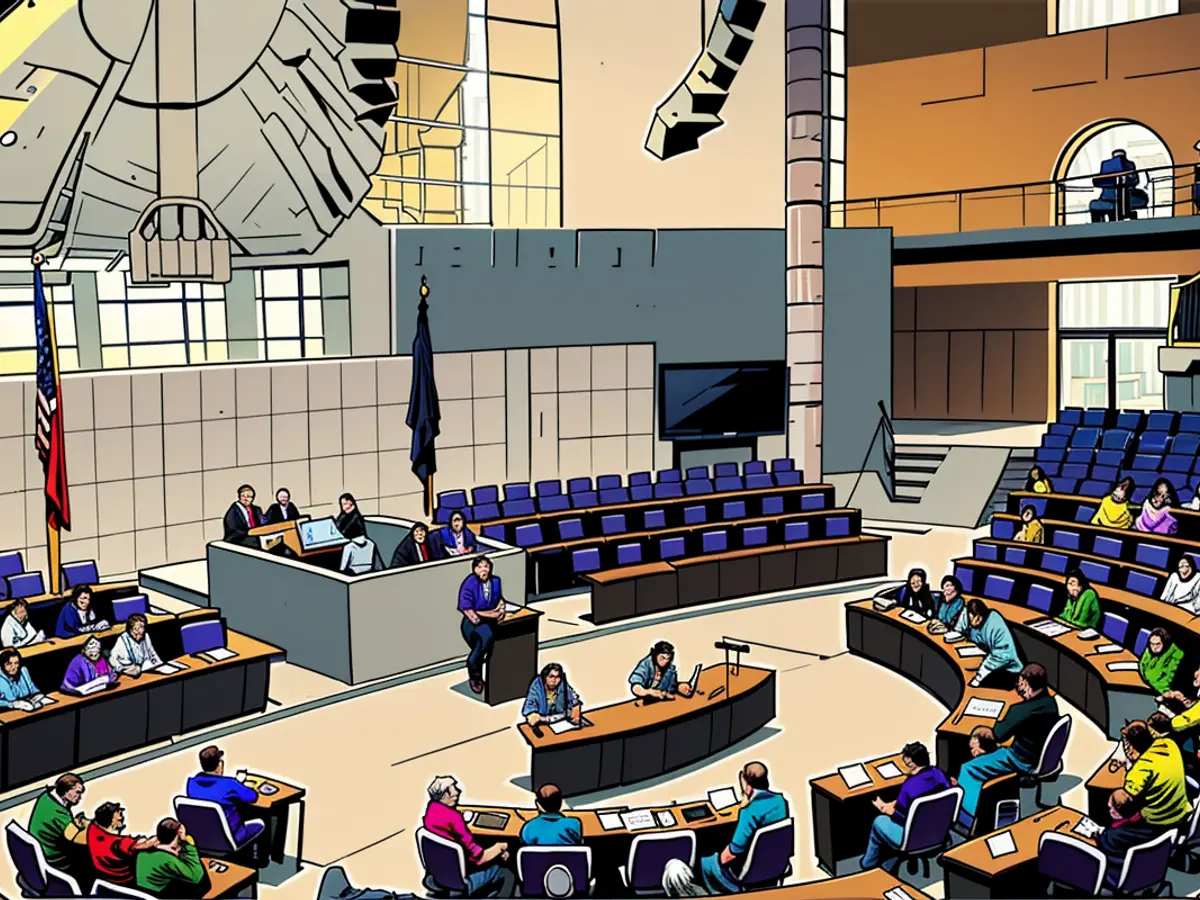Reaction to the Karlsruhe ruling - No changes to the voting rights following the judgment - Union criticism
In the Bundestag, no adjustment to the electoral system is planned until the next election in the coming year, following the ruling of the Federal Constitutional Court. This is the result of a discussion among the parliamentary group leaders of the SPD, Greens, FDP, and the oppositional Union. Union parliamentary group leader Friedrich Merz criticized the coalition.
Old Basic Mandate Clause temporarily reinstated
The Federal Constitutional Court had declared the abolition of the so-called basic mandate clause in the new electoral law unconstitutional and temporarily reinstated this regulation. Therefore, for the time being, parties can still enter the Bundestag with the strength of their second vote results, even if they fall below the five-percent hurdle but win at least three direct mandates.
On the other hand, the Karlsruhe judges confirmed another key element of the electoral reform, the limitation of the Bundestag to 630 members and the abolition of the so-called overhang and leveling mandates. Therefore, in the future, the number of seats in parliament will be determined solely by the second vote result of a party, even if it has won more direct mandates. In this case, the winners of the constituencies with the worst first vote results will not receive a seat. Among others, the Union, Left, and the Bavarian state government had filed lawsuits against the reform.
Differing opinions
After the discussion among the parliamentary group leaders, it was stated from coalition circles that there were fundamentally differing assessments between the Ampel and Union, which could not be resolved within the remaining time before the Bundestag election. The next Bundestag election is scheduled for September 2025.
Greens see clarity
Green co-fraction leader Britta Haßelmann stated upon request by the German Press Agency: "For the current legislative period, we do not see a need to actively address the basic mandate clause now, given the court's order. There is clarity for the Bundestag election in September 2025."
Furthermore, there are very different opinions among SPD, FDP, Greens, and Union regarding a change to the electoral law following the ruling of the Federal Constitutional Court, according to Haßelmann. "For us Greens, the foundations of our new electoral system have been fully confirmed by the court's ruling. The so-called second vote coverage is constitutional. The core of the reform remains intact. We are abolishing the overhang and leveling mandates. We are significantly reducing the next Bundestag to 630 members. It will be filled according to the strength of the represented parties."
Merz criticizes Ampel
Merz accuses the Ampel factions of lacking compromise. After a discussion with the chairpersons of the Ampel factions, he wrote to the members of the CDU/CSU parliamentary group, with CSU parliamentary group leader Alexander Dobrindt also participating: "We have rejected a discussion about the electoral system, limited to the Sperrklausel and the basic mandate clause, during the current legislative period." The letter is in the possession of the German Press Agency.
"We want to discuss the strengthening of constituency mandates at the appropriate time and not let ourselves be used for their further weakening." Further discussions on the electoral system with the coalition in the current legislative period are not to be expected.
Merz continued, unfortunately the procedure of so-called second-voice coverage invented by the traffic light coalition still stands in the eyes of the Federal Constitutional Court. "This means that at the next federal election, we will vote for an electoral system that no longer ensures that a directly elected member also enters the German Bundestag." The electoral system will be back on the agenda as soon as the Union is involved in government formation again.
The Federal Constitutional Court's decision to temporarily reinstate the Old Basic Mandate Clause in the electoral law has been welcomed by Green co-fraction leader Britta Haßelmann, as it provides clarity for the Bundestag election in September 2025. Union parliamentary group leader Friedrich Merz, however, critiques the Ampel factions for lacking compromise, asserting that the procedure of second-voice coverage remnant from the traffic light coalition is still unconstitutional in the eyes of the Federal Constitutional Court.








